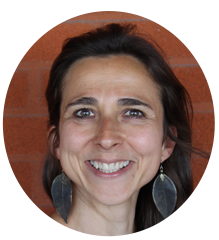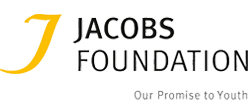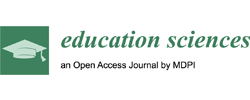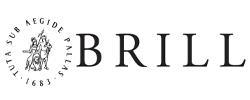EARLI 2021 - ONLINE
JURE 2021
The JURE 2021 Pre-Conference invited Junior Researchers from around the world to engage in compelling discussions on "Citizenship and Education". JURE 2021 offered early career researchers a first academic conference experience, and the opportunity to meet colleagues from across the globe.
EARLI 2021
The 19th Biennial EARLI Conference was hosted by the EARLI Executive Committee as an online conference. Participants were encouraged to present results and ideas on state-of-the-art research in learning and instruction, specifically around the topic "Education and Citizenship: Learning and Instruction and the Shaping of Futures ".
ONLINE CONFERENCE
The EARLI Executive Committee has decided, after careful consideration, that the EARLI 2021 Conference in Gothenburg will move fully online. The continuing uncertainty about what the pandemic situation will be next summer is making it impossible to plan.
We feel that making this decision early on allows us to plan creatively for a vibrant, intellectually rich conference. The conference theme – Education and Citizenship: learning and Instruction and the Shaping of Futures – has a new resonance in the light of COVID-19.
The JURE and EARLI 2021 conferences was hosted through PheedLoop, our virtual event platform.
THEME
The joy and excitement of learning and of knowledge sharing and creation, represent significant components of learning, and they should be considered as important outcomes of learning along with our traditional competence measures. In this respect, they need far more attention from researchers. The pandemic spreading during 2020 reminded us of the fact that the future is increasingly difficult to predict but it seems safe to say that learning and re-learning will continue a top prioirity regardless of the future. The EARLI community accepts the responsibility to show how learning and instruction are consequential for the intellectual, social and cultural fabric of societies striving to shape their future on the road to sustainability.
Conference programme
Consult the full conference schedule for EARLI 2021 below.
A selection of recorded sessions is now available in the EARLI 2021 PheedLoop platform.
Click here to consult the programme book.
Click here to consult the book of abstracts.

Prof. Dr. Paul Ashwin
Lancaster University (UK)
Thinking Beyond the Crises: what is a university education for?

Prof. Dr. Ola Erstad
University of Oslo (NO)
Learning Lives and Lived Citizenship - trajectories of participation and future-making

Prof. Dr. Raija Hämäläinen
University of Jyväskylä (FI)
The Challenges of Digitalisation: Innovative Multidisciplinary Methods and Technologies for Enhancing Learning and Professional Development

Prof. Dr. James Hiebert
University of Delaware (US)
A Practical Theory of Teaching

Prof. Dr. Halszka Jarodzka
Open University (NL)
Vision for Education - How Eye-tracking Helps Us to Understand and to Improve Learning and Instruction

Prof. Dr. Cintia Rodriguez
Autonomous University of Madrid (ES)
Early Manifestations of Executive Functions from the End of the First Year at Infant School, A Pragmatic View

Prof. Dr. Tina Seufert
University of Ulm (DE)
Learners' resources as moderators for instructional design, self-regulation and cognitive load

Prof. Dr. Hilde Van Keer
Ghent University (BE)
"And all at once, summer collapsed into fall": The Vital, Though Challenging Nature of Self-regulated Learning More Than Ever Acknowledged
REGISTRATION
Please be advised that EARLI membership is required to present or participate in the conference. If you are not a member at the time of registration, this will be added to the total order amount.
There will be no early bird discount for EARLI and/or JURE 2021, but all presenters are asked to register before the presenter registration deadline of the 18th of May 2021 (midnight CEST).
| EARLI Members (in 2021) |
Non-members (in 2021) |
|
| EARLI 2021 | € 175 | € 225 |
| JURE 2021 | € 20 | € 40 |
| EARLI + JURE 2021 | € 195 | € 265 |
| EARLI 2021 | EARLI 2021 + JURE 2021* | |
| EC Members | € 87,5 | € 97,5 |
| Past Presidents | € 87,5 | € 97,5 |
| Keynote Speakers | € 0 | € 10 |
| Stakeholders | € 0 | € 10 |
| EARLI 2021 IPC | € 0 | € 10 |
| JURE 2021 IOC | € 0 | € 10 |
| SIG Coordinators | € 87,5 | € 97,5 |
| JURE Coordinators | € 87,5 | € 97,5 |
SUBMISSION TYPES
In light of the online conference, the submission types have been slightly altered (since December 7th). Consult our updated submission guidelines for further information on new formats and timings.
Submissions for EARLI 2021 have now closed.
PAPER
Paper sessions are oral presentations, followed by a discussion with the audience. It is important that empirical papers have data and results, or they will not be accepted. Research that is at an earlier stage is very suitable for Roundtable or Poster sessions. Theoretical papers, of course, are welcome. Paper sessions are scheduled for 60 minutes with two presentation formats to choose from:
Single Paper
Single paper sessions are scheduled for 60 minutes and consist of three thematically clustered papers. Each presenter is offered 15 minutes to present their paper, followed by 15 minutes of discussion facilitated by the chair.
Espresso Paper
Espresso paper sessions are scheduled for 60 minutes and consist of six thematically clustered papers. Each presenter pre-records or uploads their presentation for asynchronous viewing, with asynchronous discussion through a discussion forum. During the synchronous session, each presenter is offered 5 minutes to summarise key points of their full presentation, followed by 30 minutes of discussion facilitated by the chair.The recommended time for pre-recorded presentations is 15 minuted per presentation.
A paper session consists of 3 (Single) or 6 (Espresso) papers and is scheduled for 60 minutes.
SYMPOSIUM
Symposia provide an opportunity to present research on one topic, often from multiple perspectives, compiling a coherent set of papers for discussion. Symposium sessions are directed by a chair, involving either three (or, if wished, four) presenters and one discussant, from at least three different countries. The role of the discussant will be to facilitate participation and discussion. One new review criterion will evaluate to which extent the symposium aims to be interactive. We recommend that each individual submission is checked for its own quality and its relevance and coherence to the topic of the symposium prior to formal submission to EARLI 2021.
A symposium is scheduled for 60 minutes, with two presentation formats to choose from:
Symposium
Symposia are scheduled for 60 minutes and consist of three to four live presentations (total of 45 minutes) followed by 15 mins of discussion facilitated by discussant. If you opt for four presentations, please be advised that presentations should fit within the allocated timeslot of 60 minutes, allowing sufficient time for discussion.
Espresso Symposium
Espresso symposia are scheduled for 60 minutes and consist of three to four presentations that are pre-recorded and uploaded for asynchronous viewing prior to the session. The recommended time for pre-recorded presentations is 15 minuted per presentation. The live session involves a brief introduction by the Chair, with 5-minute presentations by each of the presenters, drawing out key points from their presentation. The Discussant facilitates an in-depth discussion for 30 minutes afterwards.
A symposium is scheduled for 60 minutes.
POSTER
Poster sessions are scheduled for 60 minutes, following the format above.
Consult our Poster Guidelines for further guidance on how best to prepare your poster for presentation.
ROUNDTABLE
Roundtable sessions are scheduled for 60 minutes as a live session and consist of 3 thematically clustered roundtables. Roundtable sessions offer opportunities for a more discursive exploration of research issues. This may well involve discussion of work in progress. The presenters explain their research and research issue, and invite the participants to help to discuss emerging data or to solve a research issue or problem. Each participants will explain and discuss their research one after another, with discussion from participants.
Three roundtable presentations are clustered together per session, and are scheduled for 60 minutes.
ICT DEMONSTRATION
ICT Demonstrations are scheduled for 60 minutes as a live session. ICT Demonstrations allow presenters to display, explain and familiarise users with a potentially useful teaching or research tool or method. The presentation may include references to completed research, but the point of the session is to demonstrate the tool, not present the research for criticism. The audience may offer their viewpoint and share their experiences with similar tools or different tools for the same purpose.
ICT Demonstrations are scheduled individually for 60 minutes.

WORKSHOP
Workshops are scheduled for 60 minutes as a live session. Workshops provide an opportunity to familiarise participants with some aspect of research or teaching practice, so that questioning, and discussion are suitably informed. Learning-by-doing occupies most of the session, and any presentations are brief. Providing adequate time for reflective discussion is important.
Workshops are scheduled individually for 60 minutes.

COLLABORATIVE WORKSPACE
Collaborative workspaces are scheduled for 60 minutes as a live session. Collaborative workspaces allow the discussion of ongoing or future research projects with the goal of establishing or strengthening research collaborations. This may include collaborations about constructs that researchers use, but also about methodologies or a specific content area. The submission for a collaborative space should include the main content area for which collaboration shall be established or deepened.
Collaborative workspaces are scheduled individually for 60 minutes.
PANEL
DISCUSSION
Panel Discussions are scheduled for 60 minutes as a live session. Panel discussions allow for an in-depth discussion on a specific topic determined through a separate call, between a maximum of six representatives of stakeholders, policy makers, associations, research institutes or companies. The panel discussion is followed by a Q and A session with the audience.
Panel Discussions are scheduled individually for 60 minutes.
.
REVIEW
The EARLI 2021 reviewers help to ensure the scientific quality of the conference. The review process is the most important aspect of organising the EARLI conference, as the outcome of this process will determine the quality of the participants' experience.
We wish to express our heartfelt thanks to the 429 reviewers who assisted with the EARLI 2021 review process!
Consult the EARLI 2021 review thresholds and rationale here.
Consult the EARLI 2021 acceptance rates per paper type here.
JACOBS FOUNDATION AWARDS
The EARLI Executive Committee, in collaboration with the Jacobs Foundation, would like to express its commitment to recognise high quality research conducted in countries that are facing financial struggles and where researchers have little access to funds.
As such, we are pleased to offer the Jacobs Foundation Presenter Award for presenters with an accepted presentation. Additionally, and new for this conference, we also grant the Jacobs Foundation Attendee Award to attendees without an active role in the conference.
Both awards were granted in the form of a fully waived conference fee for EARLI 2021 and/or JURE 2021.
Consult the full call here.
Session Recordings
One of the advantages of hosting an online event, is the opportunity to provide recorded materials for on-demand viewing even long after the conference has finished. As such, some of the sessions at EARLI or JURE 2021 may be recorded and made available for on-demand viewing within PheedLoop. None of our recordings, apart from the keynotes, will be shared outside of the PheedLoop platform, for which a unique login is required.
A selection recorded EARLI 2021 sessions is now available for on-demand viewing.
Important dates
Please consider the following important dates:
-
1 September 2020Submissions open
-
12 January 2021Submission deadline
-
1 March 2021Registrations open
-
16 March 2021Review deadline EARLI 2021 and JURE 2021 (first round)
-
31 March 2021Review results for EARLI 2021 and JURE 2021 (first round)
-
18 May 2021Presenter registration deadline
-
18 - 20 August 2021JURE 2021
-
23 - 27 August 2021EARLI 2021 (with possible extension until the 3rd of September)
EARLI 2021 TEAM
Conference President
Prof. Roger Säljö, University of Gothenburg, Sweden
Conference Management Team
Jonas Emanuelsson, University of Gothenburg, Sweden
Ilse Hakvoort, University of Gothenburg, Sweden
Local Organising Committee
Hoda Ashjari, University of Gothenburg, Sweden
Åke Ingerman, University of Gothenburg, Sweden
Angelika Kullberg, University of Gothenburg, Sweden
Rimma Nyman, University of Gothenburg, Sweden (JURE Conference President)
Programme Advisory Group
Debra Myhill, University of Exeter, United Kingdom
Crina Damsa, University of Oslo, Norway
Nina Bonderup-Dohn, University of Southern Denmark, Denmark
Ilse Hakvoort, University of Gothenburg, Sweden
Laura Hirsto, University of Eastern Finland, Finland
Piet Van den Bossche, University of Antwerp, Belgium
Jo Van Herwegen, University College London, United Kingdom
Koen Veermans, University of Turku, Finland
Technology Advisory Group
Eleni A. Kyza, Cyprus University of Technology, Cyprus
Jonas Emanuelsson, University of Gothenburg, Sweden
Dominik Froehlich, University of Vienna, Austria
Sofia-Eleftheria Gonida, Aristotle University of Thessaloniki, Greece
Thomas Martens, Medical School Hamburg, Germany
Antti Rajala, University of Helsinki, Finland
Tijs Rotsaert, Ghent University, Belgium
SPONSORS
EARLI 2021 wishes to thank the following sponsors and exhibitors:

Elsevier provides information and analytics that help institutions and professionals progress science, advance healthcare and improve performance. We help researchers make new discoveries, collaborate with their colleagues, and give them the knowledge they need to find funding. Our goal is to expand the boundaries of knowledge for the benefit of humanity.

jacobsfoundation.org

mdpi.com/journal/education
Education Sciences is an international peer-reviewed open access journal published monthly and online by MDPI. It is indexed in ESCI, Scopus, ERIC and ERIH Plus.

maxqda.com
MAXQDA is a world-leading software package for qualitative and mixed methods research. Analyze all kinds of data – from texts to images and audio/video files, websites, tweets, focus group discussions, survey responses, and much more. Developed by and for researchers, MAXQDA is at once powerful and easy-to-use, innovative and user-friendly, as well as the only leading QDA software that is 100% identical on Windows and Mac.

proctorio.com
Proctorio is comprehensive learning integrity platform with automated solutions for remote online exams. Our platform integrates directly with your institution’s LMS, ensuring the total academic integrity of every assessment, every time. We provide educators with the means to automate their testing processes and easily conduct secure in-house online exams without external invigilators.

waxmann.com
Since our foundation in 1987 our publishing house has been devoted to the publication of academic literature, covering topics from the humanities and social sciences. We publish high-quality articles, books, journals and book series. If you are interested in publishing with us, please contact us. We will gladly consult with you!

brill.com
Brill remains one of the fastest growing publishers of books in Educational Research and related fields, with more than 100 new titles published annually, along with an increasing offering of journals and other resources. Brill’s publications feature a cast of top international authors that make up a veritable "Who's Who" in their specialties. Contact acquisitions editors John Bennett (bennett@brill.com) and Evelien van der Veer (veer@brill.com) for more information.
.
.





